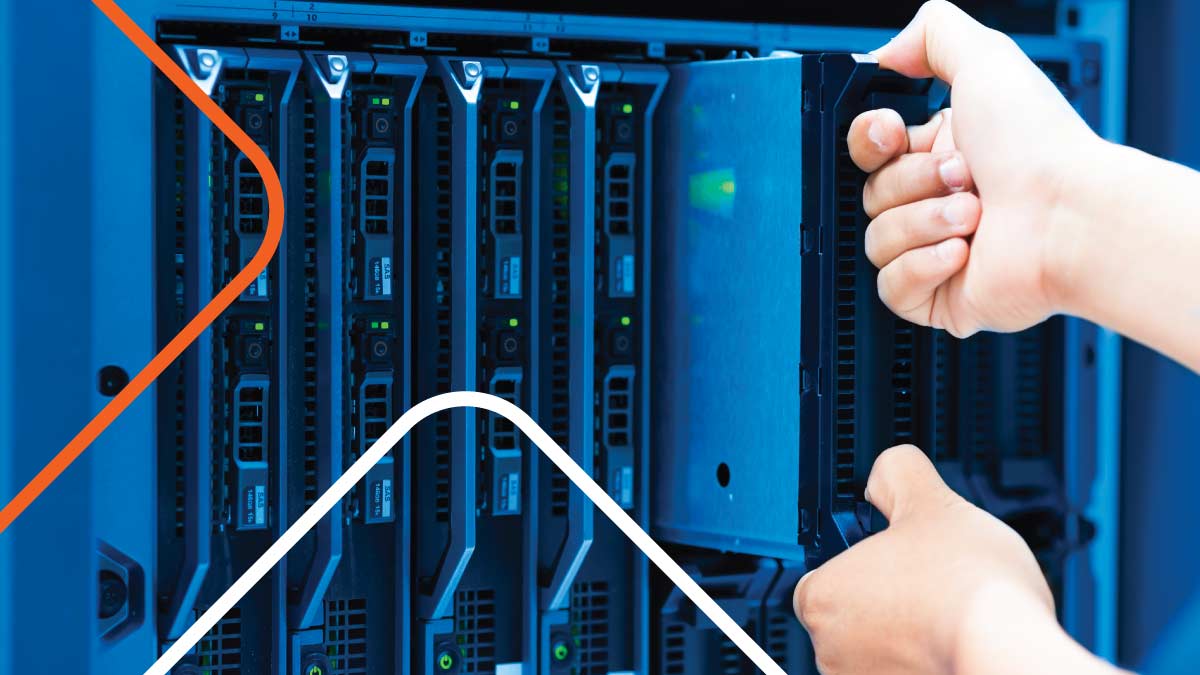Data centers play a critical role in the smooth operations of companies across various industries. These centers are the backbone for storing and processing vast amounts of data, keeping information readily accessible and protected. However, data centers require regular maintenance to maintain optimal performance and reliability. This article will explore the importance of data center maintenance and the key components that contribute to its effectiveness.


Understanding the importance of data center maintenance
As the demands for data storage and processing continue to grow, companies are increasingly dependent on the smooth functioning of their data centers. A data center is a facility that houses computer systems, network infrastructure, and storage systems. It is the central hub for processing, managing, and storing critical business data.
Data centers support various business operations, including data analysis, customer relationship management, and financial transactions. Any disruption or failure in data center operations can have severe implications, including financial losses, damaged reputation, and legal consequences.
Regular maintenance is crucial for the reliable performance of data centers. This involves proactive monitoring, preventive measures, and timely repairs to address potential issues before they escalate into major problems.
The role of data centers in business operations
Data centers are the lifeblood of modern companies, providing the infrastructure and resources necessary for smooth operations. They facilitate seamless communication between various departments, enable efficient data storage and retrieval, and support critical business applications. Without data centers, companies would struggle to operate effectively.
Why regular maintenance is crucial for data centers
Data centers are complex systems with interconnected hardware, software, and environmental controls. Regular maintenance keeps all components functioning optimally and ready to handle the demands placed upon them. Here are some key reasons why regular maintenance is crucial for data centers:
- Reducing downtime: Downtime can be costly for companies, resulting in productivity loss, revenue decline, and customer dissatisfaction. Regular maintenance allows data center operators to identify and address potential issues before they lead to unexpected system failures or downtime.
- Enhancing data security: Data security is a top priority for companies, especially when dealing with sensitive information. Regular maintenance allows data center operators to implement the latest software updates and security patches, protecting that data from evolving cyber threats.
- Optimizing performance: Over time, hardware components may degrade or become outdated, impacting the data center’s overall performance. Maintenance activities such as hardware repairs and upgrades keep data centers operating at peak performance, meeting the company’s demands.
- Improving energy efficiency: Data centers consume a significant amount of energy. Regular maintenance allows operators to optimize environmental controls, such as cooling systems, to improve energy efficiency and reduce operational costs.
However, regular maintenance goes beyond addressing immediate concerns. It also involves long-term planning and strategic decision-making. Data center operators need to anticipate future growth and technological advancements to ensure that their facilities can accommodate the company’s evolving needs.
Moreover, regular maintenance allows data center operators to assess the facility’s overall health. This includes evaluating the effectiveness of disaster recovery plans, testing backup systems, and conducting audits to comply with industry standards and regulations.
By investing in regular maintenance, companies can minimize the risk of unexpected disruptions, protect sensitive data, and maximize the efficiency of their data center operations. This proactive approach enables companies to stay ahead in a rapidly changing digital landscape.

Key components of data center maintenance services
Effective data center maintenance encompasses various components that contribute to the smooth and reliable functioning of the facility.
Hardware maintenance and repairs
Hardware components, including servers, storage devices, networking equipment, and power distribution units, form the backbone of data centers. Regular maintenance involves inspecting, cleaning, and testing these components to support optimal performance. Any faulty or degraded hardware should be repaired or replaced promptly to minimize the risk of system failures.
Software updates and security patches
Software plays a vital role in data center operations, providing the necessary tools for data processing, storage management, and network security. Regular software updates help data centers benefit from the latest features, performance enhancements, and security patches. This protects against potential vulnerabilities and supports the integrity of business-critical data.
Environmental controls and monitoring
Environmental factors, such as temperature, humidity, and air quality, significantly impact the performance and longevity of data center equipment. Regular maintenance involves monitoring these environmental conditions, optimizing cooling systems, and addressing any issues that may compromise equipment reliability. By maintaining optimal environmental controls, data centers can operate at peak efficiency and extend the lifespan of their equipment.
In addition to the key components mentioned above, data center maintenance services encompass other critical aspects that contribute to the facility’s overall reliability and efficiency.
Power management and backup systems
A stable and uninterrupted power supply is crucial for data centers. Maintenance services include monitoring power usage, conducting regular inspections of electrical infrastructure, and implementing backup systems such as uninterruptible power supplies (UPS) and generators. These measures safeguard against power outages and provide a seamless transition during emergencies.
Network infrastructure optimization
Data centers rely on a robust and efficient network infrastructure to facilitate smooth data transmission and communication. Maintenance services involve analyzing network performance, identifying bottlenecks, and implementing necessary upgrades or optimizations. This keeps data flowing seamlessly between servers, storage devices, and other network components, minimizing latency and maximizing efficiency.
Data center maintenance services go beyond basic hardware and software maintenance, addressing power management and network infrastructure optimization and providing a comprehensive approach to ensuring the smooth operation of the facility.
The impact of maintenance on data center reliability
Effective maintenance practices directly contribute to the reliability and availability of data center operations.
Reducing downtime with proactive maintenance
By conducting proactive maintenance, data center operators can identify and address potential issues before they become critical. Regular inspections, equipment testing, and preventive measures help identify areas of concern and mitigate risks. By minimizing unexpected failures, proactive maintenance reduces downtime, supporting reliable data center operations.
Moreover, proactive maintenance extends the lifespan of critical data center equipment. By implementing a comprehensive maintenance schedule that includes cleaning, lubrication, and equipment calibration, data center operators can keep their hardware functioning optimally for a longer period. This proactive approach not only saves costs associated with frequent replacements but also enhances the overall efficiency of the data center.
Enhancing data security through regular updates
Cybersecurity threats continue to evolve, making data centers an attractive target for malicious actors. Regular maintenance, including software updates and security patches, addresses potential vulnerabilities and strengthens the data center’s overall security posture. Companies can protect sensitive data and maintain their customers’ trust by staying up-to-date with the latest security measures.
Optimizing energy efficiency with regular audits
Another crucial aspect of maintenance in data centers is optimizing energy efficiency. Regular energy audits can identify areas where energy is wasted or inefficiently utilized.
By analyzing cooling systems, power distribution units, and server utilization, data center managers can implement strategies to reduce energy consumption, lower operational costs, and minimize their facilities’ environmental impact. Maintaining optimal energy efficiency benefits the bottom line and aligns with sustainability goals and regulatory requirements.
Choosing the right data center maintenance service provider
When it comes to data center maintenance, partnering with the right service provider is vital. Here are some factors to consider when selecting a provider:
Factors to consider when selecting a provider
When evaluating data center maintenance service providers, consider the following factors:
- Experience and expertise: Look for providers with extensive experience in data center maintenance and a deep understanding of industry standards and best practices.
- Response time and availability: Look for a provider with prompt response times and 24/7 availability to address any emergencies or critical issues that may arise.
- Service level agreements: Review the provider’s service level agreements (SLAs) to understand the scope of services, response times, and expected levels of performance and reliability.
- References and reputation: Seek references and conduct research to gauge the provider’s reputation and track record of delivering high-quality maintenance services.
The role of service level agreements in maintenance services
SLAs are contracts between the data center operator and the maintenance service provider. These agreements outline the terms and expectations regarding services, response times, resolution times, and other key performance indicators (KPIs). SLAs promote transparency, accountability, and a clear understanding of the services delivered by the provider.
However, it is important to explore the role of SLAs in data center maintenance services. SLAs not only establish the expectations and responsibilities of both parties involved, but they also play a crucial role in mitigating risks and supporting the smooth operation of the data center.
One key aspect of SLAs is establishing clear response times. A swift response is essential in an emergency to minimize downtime and prevent any potential data loss. By clearly defining the expected response time in the SLA, the data center operator and the maintenance service provider are held accountable for meeting these expectations.
Furthermore, SLAs also outline the resolution times for different types of issues. This ensures that the maintenance service provider is committed to resolving any problems within a specified timeframe, allowing the data center to quickly return to full functionality. These resolution times are often categorized based on the severity of the issue, with more critical problems requiring faster resolution.
Another important aspect of SLAs is the establishment of KPIs, which help measure and monitor the performance and reliability of the maintenance services provided. By setting specific metrics, such as uptime percentage or mean time between failures, the SLA ensures that the service provider delivers the expected performance level. Regular reporting and monitoring of these KPIs allow both parties to identify any areas for improvement and take proactive measures to maintain the optimal functioning of the data center.
SLAs play a crucial role in data center maintenance services. They establish clear expectations, response times, and resolution times, providing transparency and accountability between the data center operator and the maintenance service provider. By setting specific metrics and monitoring KPIs, SLAs help mitigate risks and maintain the data center’s smooth operation.
Future trends in data center maintenance
The landscape of data center maintenance is continually evolving, driven by technological advancements and changing company needs.
The rise of AI and automation in maintenance services
Artificial intelligence (AI) and automation technologies are transforming various industries, and data center maintenance is no exception. AI-powered predictive maintenance algorithms can analyze large volumes of data to anticipate potential issues and schedule maintenance activities accordingly. Automation tools streamline routine tasks, enabling data center operators to focus on more strategic initiatives.
The impact of green initiatives on data center operations
As companies prioritize environmental sustainability, data centers face increasing pressure to reduce their carbon footprint. Green initiatives involve optimizing energy usage, implementing renewable energy sources, and adopting energy-efficient cooling systems. Data center maintenance supports these initiatives by keeping equipment operating efficiently and properly calibrating environmental controls.
Conclusion
Ensuring the reliability of data centers is essential. Regular maintenance, including hardware repairs, software updates, and environmental monitoring, prevents system failures, reduces downtime, and enhances data security. Selecting the right maintenance service provider involves considering experience, responsiveness, and SLA adherence factors.
As technology advances, AI and automation will further revolutionize data center maintenance, while implementing green initiatives will drive energy efficiency and sustainability. By prioritizing maintenance, companies can safeguard the reliability and performance of their data centers, enabling them to thrive in an increasingly digital world.
Need help with data center maintenance? Schedule an introductory call with Field Nation today and discover why we’re the most convenient solution for connecting with thousands of skilled IT field service technicians.








